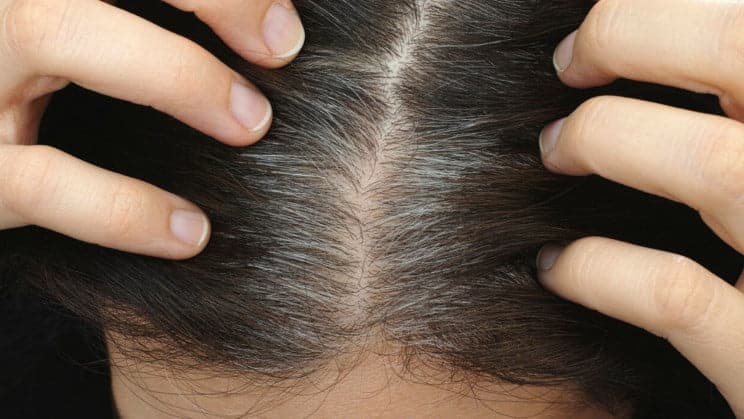A new study conducted at Columbia University offers quantitative evidence that psychological stress leads to graying of hair. More importantly, the findings also show evidence that these effects are reversible in some people, providing insight into the broader aging process in humans.
The research adds to a growing field of evidence that suggests aging is not a linear process and, in the long term, could help design new methods to slow or even demonstrate the reversibility of aging in humans.
What does the study say?
It might seem obvious that stress can lead to gray hair, as it is something that has been empirically and widely accepted by the public for years.
However, the new document, published on eLife, questions the link between graying hair and rest stress. And it also reveals the surprising discovery: reversibility of hair color, which can be restored when stress is reduced. The new findings contrast with another recent study in mice, of opposite sign.
For their study, the Columbia researchers analyzed the hair of 14 volunteers under a high-resolution scanner capable of showing even the most subtle color variations. They compared their findings with each volunteer's daily stress levels, which were recorded in a diary. The discovery was that some gray hair naturally regained its original color. An effect that had never been recorded quantitatively, explains the senior author of the study Martin Picard, Ph.D.
Stress is a key factor

The correlation between graying hair and the volunteers' stress levels was surprising. In some cases, researchers observed a precise reversibility of graying when stress decreased in a volunteer's life.
“There was an individual who went on vacation and five hairs on his head went dark again during the vacation, synchronized in time,” Picard explained.
The researchers also studied the levels of thousands of proteins in the human body and developed a mathematical model that indicates the stress-induced changes in protein mitochondria that lead to gray hair.
New clues to the reversibility of human aging
The study also has a greater purpose than simply confirming the effects of stress on our hair color and color reversibility.
Understanding the mechanisms that allow “old” gray hair to return to its “young” pigmented states is a great thing. It could provide new clues about the reversibility of human aging in general and how this is affected by stress. The Columbia data add to a growing body of evidence showing that human aging is not a fixed, linear biological process, but it can, at least in part, be interrupted or even temporarily reversed. The study's senior author himself explained that our hair contains information about our biological history, just as rings in tree trunks reveal information about a tree's age.
While still under the skin of our scalp, hair is exposed to stress hormones and other effects within the body. Once they leave our heads, they harden and can be analyzed to provide data on the processes occurring under the human skin.

Other studies on the reversibility of aging
A June 2019, a team from Washington University injected old mice with an enzyme found in the blood of young mice, and extended their survival by at least 20 percent. I talked about it here.
At the beginning of the month July 2021, a Harvard team has found evidence that germ cells in mice have a mechanism that can “reset” their biological age. I talked about it here.
All this is obviously far from giving any guarantee that, even by confirming the reversibility of aging, we will actually succeed in stopping or reversing it. There is also a recent study that it mandatorily sets the limits of human life at 150 years. At least get there, and healthy?


